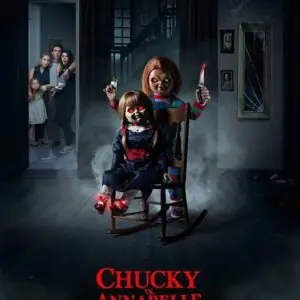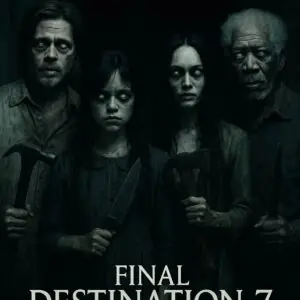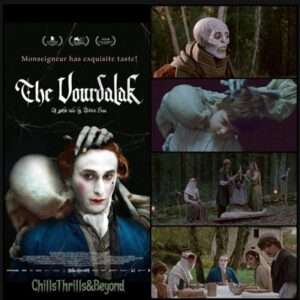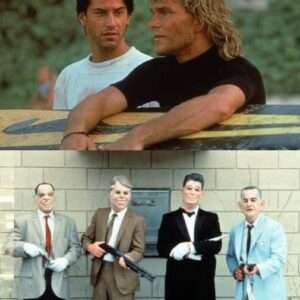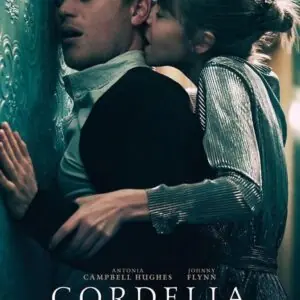Introduction
John Carpenter’s The Thing (1982) is a masterpiece of horror cinema, lauded for its practical effects, atmosphere, and psychological terror. When a prequel was announced decades later, fans were both excited and wary. Directed by Matthijs van Heijningen Jr. and released in 2011, The Thing (2011) serves as a direct prequel to Carpenter’s film, detailing the events at the Norwegian camp that preceded the American team’s discovery. While the film has its strengths—particularly in its commitment to continuity—it ultimately falls short of its predecessor due to its overreliance on CGI, lack of suspense, and underdeveloped characters.
This review will examine the film’s narrative, performances, visual effects, and overall effectiveness as both a standalone horror movie and a prequel to a classic.
Plot and Continuity with Carpenter’s Film
One of the strongest aspects of The Thing (2011) is its dedication to maintaining continuity with the 1982 film. The story follows paleontologist Kate Lloyd (Mary Elizabeth Winstead), who is recruited by Norwegian scientist Dr. Sander Halvorson (Ulrich Thomsen) to investigate an extraterrestrial organism found in Antarctica. Upon arriving at the Norwegian research base, they discover a crashed alien spacecraft and a frozen specimen buried in the ice.When the creature thaws and escapes, paranoia sets in as the tear

ealizes it can perfectly imitate any living being. The film meticulously sets up key moments that lead directly into Carpenter’s version—such as the axe in the wall, the two-faced corpse, and the burned remains of the camp. These callbacks are satisfying for fans, but they also highlight one of the film’s weaknesses: it feels more like a checklist of references rather than a fully realized story.
The plot structure closely mirrors the original, with the alien infiltrating the group and characters turning on each other. However, it lacks the slow-burn tension that made Carpenter’s version so effective. The 2011 film moves at a faster pace, sacrificing suspense for action.
Characters and Performances
Mary Elizabeth Winstead delivers a solid performance as Kate Lloyd, a capable and intelligent protagonist in the vein of Ripley from Alien. While she doesn’t reach the same iconic status as Kurt Russell’s MacReady, she brings a grounded, determined energy to the role.
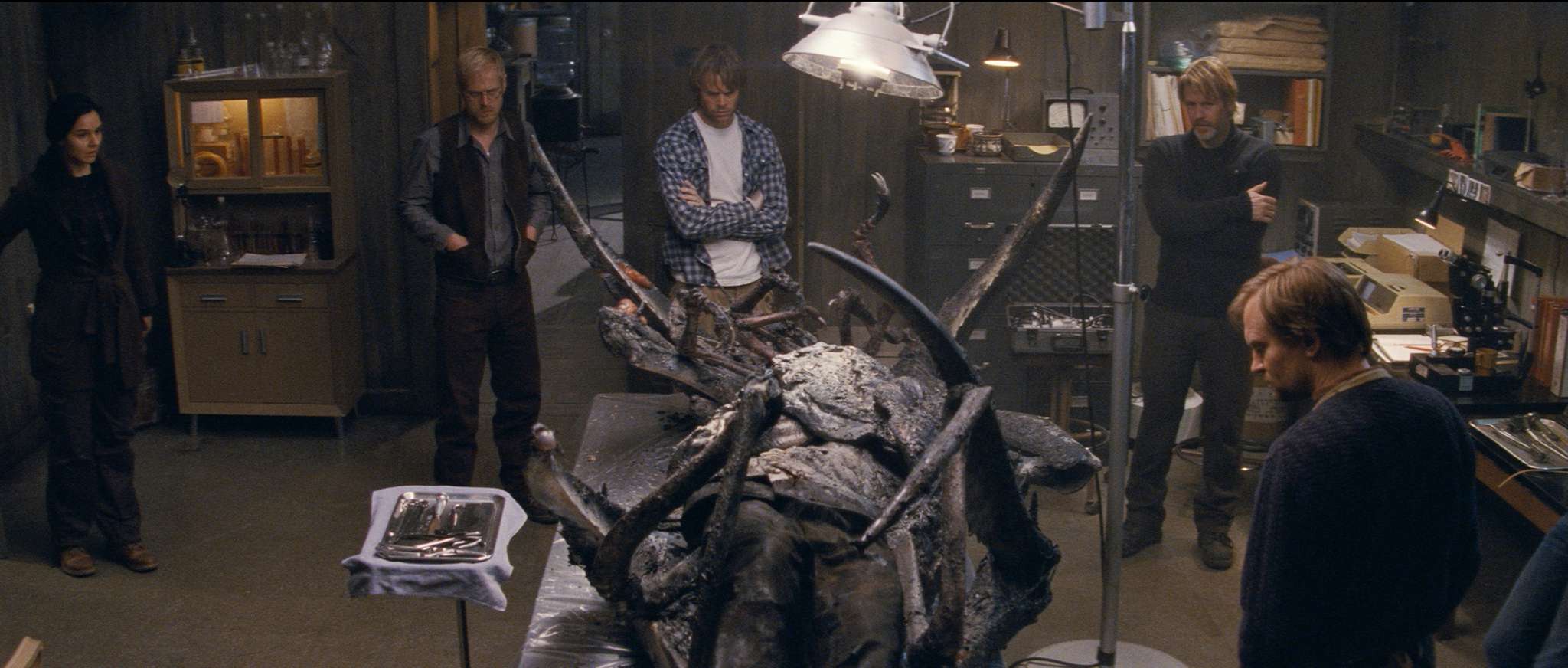
The supporting cast, however, is largely forgettable. Ulrich Thomsen’s Dr. Halvorson is a standard arrogant scientist, while Joel Edgerton’s helicopter pilot Sam Carter serves as a rough analogue to MacReady but lacks depth. Many of the Norwegian characters blend together, making it difficult to feel invested in their fates.
One of the biggest missed opportunities is the lack of psychological depth in the characters. In Carpenter’s film, the paranoia was palpable—every glance and line of dialogue carried weight. Here, the distrust among the crew feels superficial, with few standout moments o tension.
Visual Effects: CGI vs. Practical
The most contentious aspect of The Thing (2011) is its use of CGI over practical effects. Carpenter’s film is legendary for Rob Bottin’s grotesque, groundbreaking creature designs—each transformation was visceral, tangible, and horrifying.
The prequel initially planned to use practical effects, and some were filmed, but studio interference led to most being replaced with CGI. The result is a mixed bag. Some creature designs are creative and unsettling (such as the “split face” monster), but the CGI often looks weightless and artificial, robbing the horror of its impact.

Ironically, the best effects in the film are the ones that are practical—particularly the final creature, which was a physical animatronic. Had the entire film committed to practical effects with minimal CGI enhancement, it could have been a worthy successor to the original’s legacy.
Tone and Atmosphere
Carpenter’s The Thing was a masterclass in atmosphere—the isolation, the bleak setting, and Ennio Morricone’s haunting score created an overwhelming sense of dread. The 2011 film attempts to replicate this but falls short.
The cinematography is competent but lacks the same eerie, claustrophobic feel. The score, while serviceable, doesn’t leave the same impression as Morricone’s minimalist themes. Additionally, the film relies too much on jump scares rather than sustained tension.
That said, there are moments where the atmosphere works—particularly in the first act when the team discovers the frozen alien and the tension begins to build. Unfortunately, once the action kicks in, the film becomes more of a creature feature than a psychological horror.
Is It a Worthy Prequel?
As a prequel, The Thing (2011) does an admirable job of setting up the events of the 1982 film. The attention to detail in connecting the two stories is impressive, and fans will appreciate seeing how the Norwegian camp met its demise.
However, as a standalone horror film, it doesn’t reach the same heights. The overuse of CGI, underdeveloped characters, and reliance on action over suspense prevent it from being a true classic. It’s a decent horror movie with some effective scares, but it lacks the originality and depth of Carpenter’s version.
Final Verdict
The Thing (2011) is a flawed but mostly entertaining prequel. It succeeds in expanding the lore of the original and provides some thrilling sequences, but it never captures the same level of terror or artistry.
Pros:
- Strong lead performance by Mary Elizabeth Winstead
- Faithful continuity with the 1982 film
- Some creative creature designs
Cons:
- Overuse of CGI weakens the horror
- Underdeveloped supporting characters
- Lacks the slow-burn tension of the original
Rating: 6.5/10
While not a disaster, The Thing (2011) is ultimately a missed opportunity to recapture the magic of one of horror’s greatest films. It’s worth watching for fans of the franchise, but it doesn’t surpass—or even equal—Carpenter’s masterpiec
